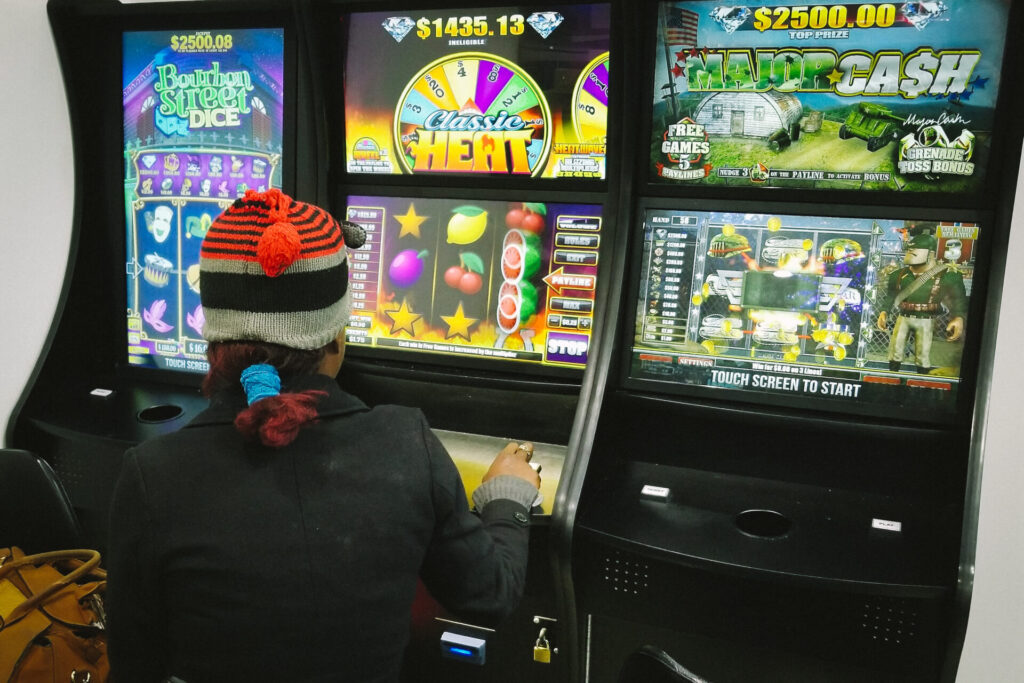Slot machines have undergone significant transformations over the years, with advancements in technology driving a wave of innovation in the gaming industry. One of the cutting-edge features that have revolutionized traditional slot machines is the incorporation of virtual reality VR and augmented reality AR elements. This has taken the gaming experience to new heights by immersing players in a visually stunning and interactive environment. With VR headsets, players can step into a virtual world where the slot reels come to life with vibrant animations, and bonus rounds unfold in a three-dimensional space around them. Another notable innovation is the integration of artificial intelligence AI in slot machines. AI algorithms analyze player behavior, preferences, and patterns to create a personalized gaming experience. This not only enhances player engagement but also allows for dynamic adjustments in real-time, such as adapting the difficulty level of bonus rounds or suggesting games based on individual preferences. AI also plays a role in optimizing the odds and payouts, creating a more balanced and entertaining gameplay experience.

Blockchain technology has also made its mark on slot machines, bringing transparency and fairness to the forefront. Blockchain ensures the integrity of the gaming process by providing an immutable and decentralized ledger for recording transactions. This means that the outcome of each spin is verifiable and cannot be tampered with, ensuring a fair playing field for all users. Additionally, blockchain has facilitated the development of cryptocurrency-based slot machines, allowing players to wager and win in cryptocurrencies like Bitcoin, adding an extra layer of security and anonymity to transactions. The advent of skill-based slot machines represents a departure from traditional luck-based gameplay. These machines incorporate elements of skill, strategy, and decision-making, giving players more control over the outcome. Skill-based slots often feature mini-games or challenges that require players to showcase their abilities to win additional rewards. This shift towards skill-based gaming not only attracts a new generation of players who seek more interactive experiences but also introduces an element of competitiveness to the slot machine landscape.
Touchscreen technology has become a staple in modern slot machines, replacing the traditional mechanical levers and buttons. This not only provides a more intuitive and user-friendly interface but also opens the door to innovative gameplay mechanics. Touchscreens enable gesture-based controls, allowing players to swipe, tap, and interact directly with the game elements. This tactile experience adds a layer of immersion and interactivity, enhancing the overall gaming experience. Furthermore, the concept of gamification has transformed akun server thailand slot machines into engaging and entertaining adventures. Gamified slots incorporate narrative elements, character progression, and quests into the gameplay, turning the act of spinning reels into a captivating journey. Players can unlock achievements, progress through storylines, and compete with others, adding a social and competitive aspect to the slot machine experience. In conclusion, the evolution of slot machines has been marked by a fusion of cutting-edge technologies and creative innovations. From virtual reality and artificial intelligence to blockchain and gamification, these advancements have elevated slot machines from simple mechanical devices to sophisticated and immersive gaming platforms. As technology continues to advance, the future holds even more exciting possibilities for the world of slot machine gaming.